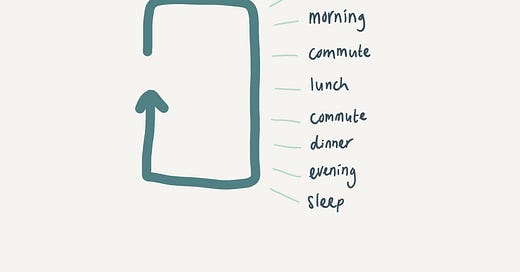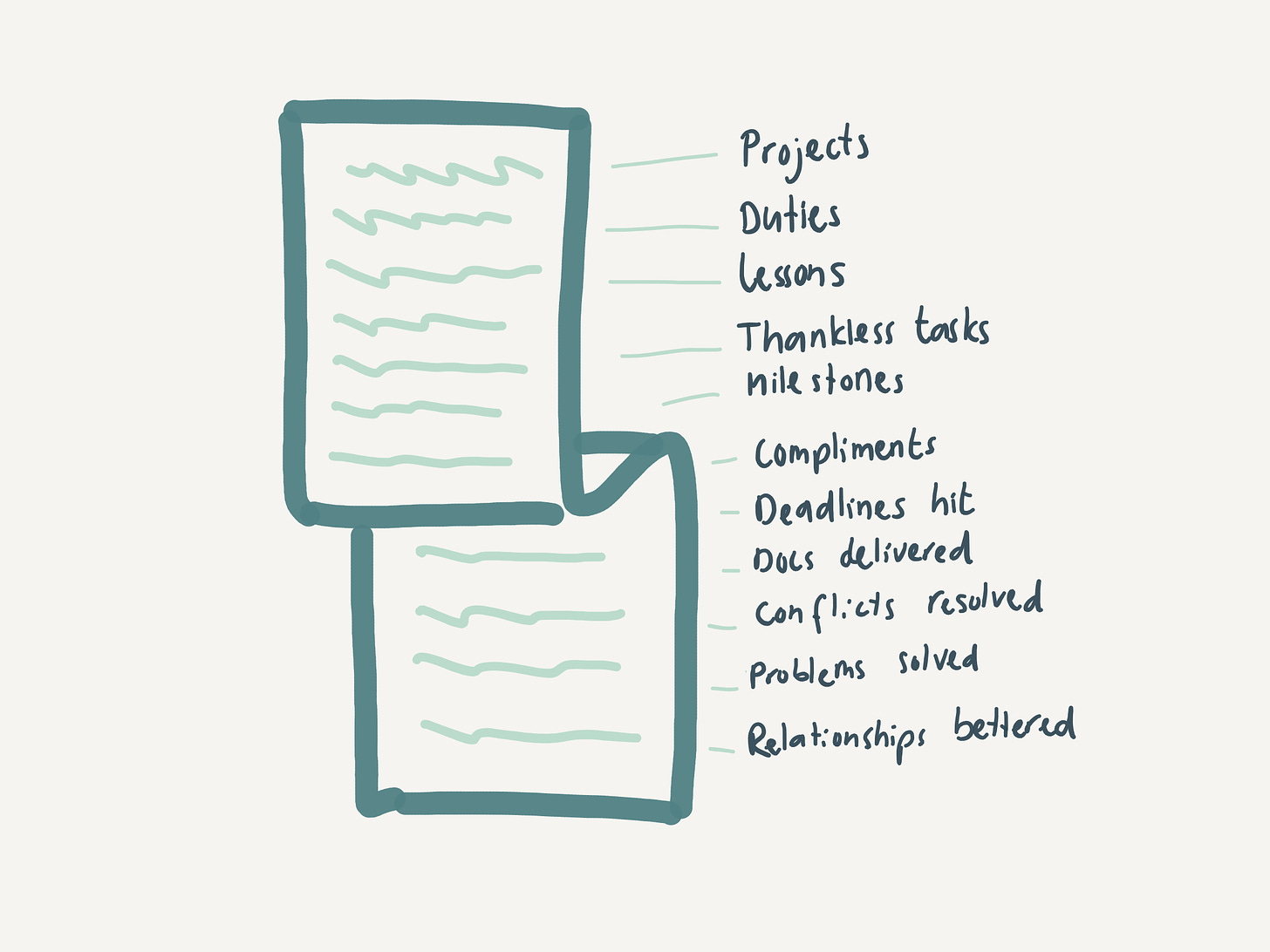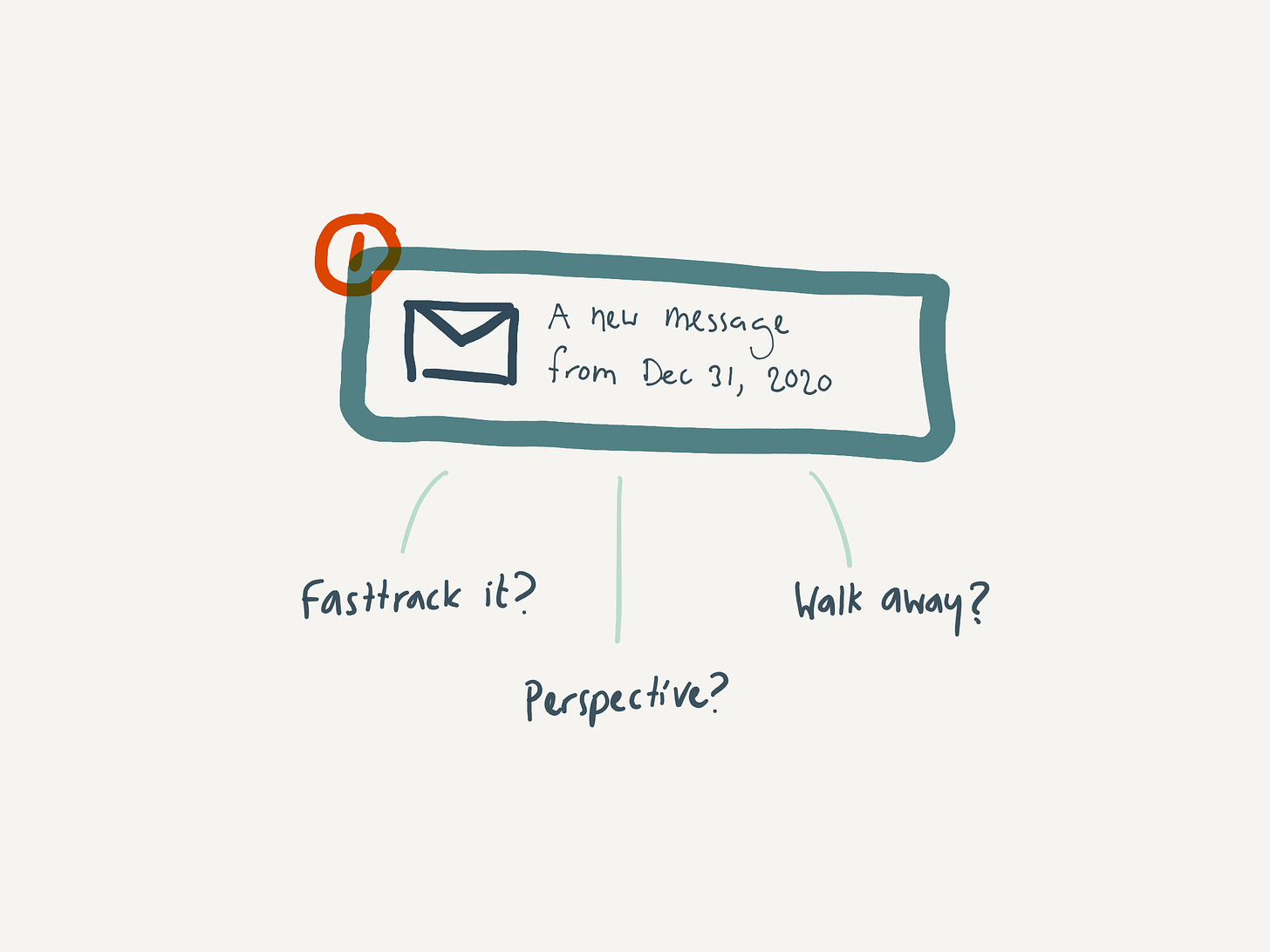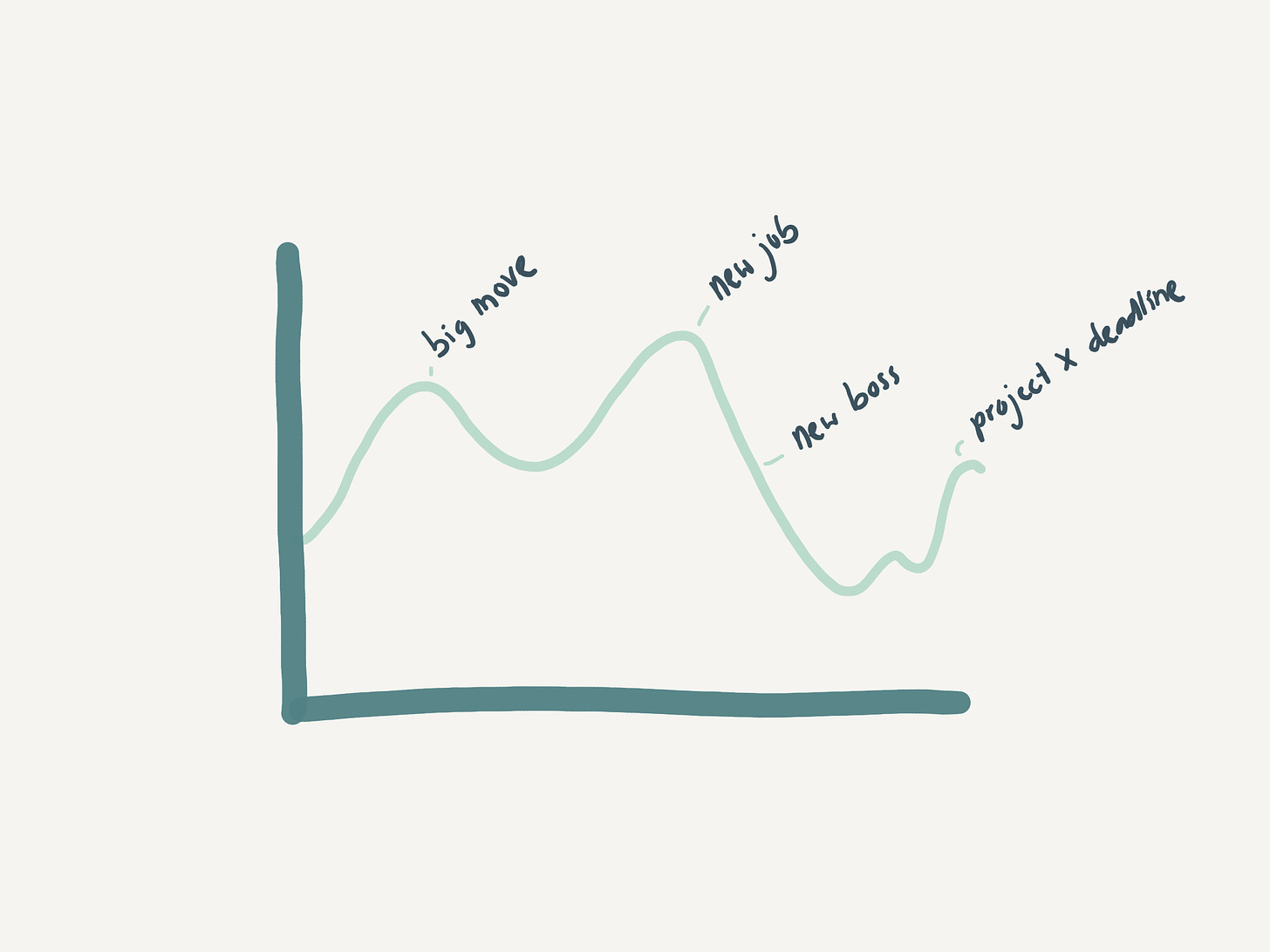Four ways to reflect on the year ahead
Hi there!
Whether you’re off work for the holidays or looking forward to a day off ahead, I hope you’re enjoying the (prospect of a) break.
For many people, the end of the year is a time to reflect. Where has the time gone? Am I happy with my work and my life? What do I most want to do differently in the new year? Today: a little inspiration for taking the time to reflect.
1. Take a look at your daily routine
Instead of looking at your job, your hobbies, or your personal relationships, you can take a look at everyday routines. What things do you do every day or every week? How do you feel about those practices? Are you happy with the way you spend your mornings, your commute, your evenings and weekends? In his book Atomic Habits, James Clear gives solid tips for tackling your habits.
A warning: changing your habits is not easy, so start small and begin by altering one moment in your day.
Some time back, I tried to start writing “morning pages.” But that attempt ran aground pretty quick. Then I experimented with quitting social media cold turkey. And I noticed I had more opportunities to reach for my notebook and write. The lesson? Don’t just look at adding new elements to your routine, but find things to scrap. It clears the way for new and better habits.
2. Start a brag file
I recently came across this blog, where Julia Evans details the idea of a brag document.
Here’s the idea: write a document listing your accomplishments. It’s pretty simple! Instead of trying to remember everything you did with your brain, maintain a “brag document” that lists everything so you can refer to it when you get to performance review season!
Julia explains that we tend to forget a lot of things we achieved. And not only is it a shame to forget all the cool stuff, but you won’t be doing yourself any favors in that upcoming performance review either.
Making a brag document can feel a little awkward at first. You may not be used to writing down your achievements, let alone sharing a list of them with the people around you. But that’s precisely why it’s a good exercise. It allows you to look back and appreciate everything you’ve done over the past few months. Odds are, it will also influence how you spend your time in the months ahead.
3. Send yourself advice from the future
Hold off a minute on making new year’s resolutions and setting new goals. Instead, first give yourself some advice. It’s New Year’s Eve in 2020. What would you tell your one-year younger self?
Categorize your recommendations into 3 types: put it in high gear, get some perspective, or walk away. Which decision could you have made much earlier? What thorny dilemma so stressed you out in late 2019 but hasn’t been an issue now for a long time. And what project should you have pulled the plug on way back in December 2019?
4. Draw a stress chart
As you look back on a stressful season, it’s interesting to pinpoint where exactly the stress came from. A stress chart can help. Plot the stress you experienced in a simple line graph and try to figure out what triggered the outliers, high and low.
You can also expand this exercise: Huib Hudig, who runs Speak to Inspire, asked me to plot my entire life (!) and mark the high and low points. That made for some good conversation and fascinating realizations.
I can wholeheartedly recommend spending an evening like this with family or friends this winter break, talking and sharing about your lives.
Have a good week!
Rick
P.S. Want to pass on this newsletter to a friend? Here’s the signup link to share.







